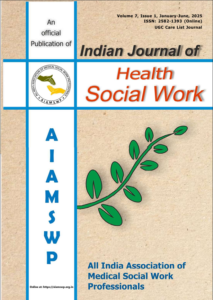Health policymakers at the macro level can
focus on health infrastructure and inform
patients about medical care rather than just
treatment, and with an rising patient
population in the community, social workers
can be used to uncover causes of sickness in
the public. Access to healthcare varies from
country to country, from group to group, and
from person to person, based on social,
economic, cultural, and health regulations.
Social workers can help people understand
diverse cultures and settings by working in
this profession. Correct and efficient support
systems, suitable facilities and equipment will
be finished to deliver high-quality medical
services and technologies. On the other hand,
the role of social work in the health care
system and social services is vastly different
from that of other professions. Acceptance of
clients and professional attitudes are key
features of social workers that lead them to
evaluate clients in three situations: 1- Needs
analysis 2- The client’s condition 3- The
interaction between a person and his or her
community (Parast, SM and Behrouz A, 2014).
Currently, social workers will have a role over
the course of treatment services (outpatient,
acute, chronic, crisis intervention, counselling,
advocacy, and case management).
Participation in natural disasters, global and
national issues associated with health-care
privatisation, and stress inflicted on patients
and their families are the key roles that social
workers can play (NASW, 2005). Social
workers have always contributed a holistic
and client-centered approach to health care
teams, recognising that health is influenced
by various factors i.e, social, economic, and
environmental factors.
The Social Determinants of Health (SDOH)
have been defined as the conditions under
which individuals live and work, which have
an impact on their quality of life and
healthcare outcomes (WHO, 2008). Human
rights are hard law, not meaningless and
ambiguous recommendations. States all
across the world are taking drastic measures
to combat the health situation. Time and
resources are limited, and there is
tremendous pressure to implement effective
solutions and scale them back as necessary.
While promoting the right to life and health,
authorities must ensure that these measures
are consistent with other human rights
commitments, particularly civil and political
rights. The rights to privacy, free movement,
and other fundamental human rights must be
protected to the greatest extent possible. In
comparison to other medical and paramedical
professions, social workers are significantly
enable to ensure the preservation of human
rights in relation to any health challenges
(Kaviarasu, 2023).
It is possible that without a strong
professional identity and strong adherence to
key social work practice principles, as well
as broader supporting structures to protect
the social work profession in a medically
dominated field, core social work principles
and practices will be eroded by medical models
of practice. While this is alarming and should
not be taken at face value, opposing evidence
was gathered indicating that medically
entrenched social work departments in some
cases strategically used their position to
promote and advance the social work
profession inside the medical environment.
These examples were distinguished by outstanding social work leadership and
presentation of key social work practice
principles. Adherence to, and ongoing
education around, core social work principles
may help to not only insulate the profession
from value erosion, but also strategically
position social work to continue to promote
the unique features of the profession and its
value in addressing the new wave of health
issues arising in India (Cleak, et al., 2020).


